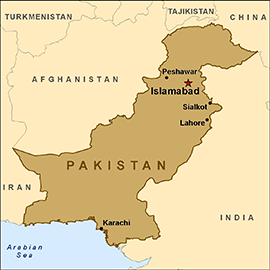
How does RSPN work counterweight radicalization in Pakistan?
“The only people, who can save Pakistan from itself, are Pakistanis”
With a climate of radicalisation in Pakistan, poverty is an issue constantly on the political and public agenda. The youth of Pakistan has become rebellious and a polarisation of politics is occurring due to a rise in extremist groups. With this in mind, thousands of frustrated and dissatisfied youths are taking their anger out on the lack of systems. To tackle this radicalisation the Rural Support Programmes Network which was founded in 1982 has become committed to supporting RSP in improving the poor communities’ management of resources. RSPN focuses on social mobilisation which is the essential concept that poorer people can help themselves and their situation through organisation. This consists of programmes which give support financially as well as technical; which in turn push people to take on a more administrative approach to poverty. RSPN concentrates itself into linking the government, NGO’s and the community; thus providing a platform of support through the teamwork of all three; ultimately having a profound impact on public policy. In the present day, RSPN has expanded over 114 districts out of 131 which also include Azaad Jammu and Kashmir. Out of a population of 181 million, the RSPN influence is able to reach 26.65 million people. This influence includes taking action towards the healthcare system. Without a secure healthcare system and increasing poverty, poor individuals find it difficult to receive treatment. The RSP has created a system where the poor are able to gain treatments for a small price every year.
Not only does its expansion speak for its success, it also highlights the lack of need for foreign input such as the US. This is an ultimate pulling point as Pakistan is able to use its own backing of networks to tackle issues, much rather than being dependent on other foreign input. The local community in fact takes projects in to their own hands, allowing a better system where those familiar to the issues of that specific area are able to have maximum input. In order to become a stable country, Pakistan needs to step towards re-building and helping communities overcome their economic hindrances. By giving more power to the locals the RSP narrows in and shifts away from large scale projects which may overlook specific regions. This is a contrast to the large scale short term projects carried out by foreign inputs such as the UN which do not expand to all isolated areas, but remain focused on the capital cities and may even be accustomed to ‘cherry picking’ the areas to aid. The RSPN has allowed 1,902 community schools to be built which encapsulates what the programme is about, from healthcare to education, the aims of the programmes are far from limited.
The point remains clear; the work of the Rural Support Programmes Network has offered an effective counter weight to radicalisation in Pakistan. It tackles poverty all over through its focus on access to healthcare, education and the building of necessary projects in areas which are seemed to be forgotten. Although it cannot completely change the problems of the nation, it can show and has successfully shown that if the correct path is taken, Pakistan has the potential to save itself.
